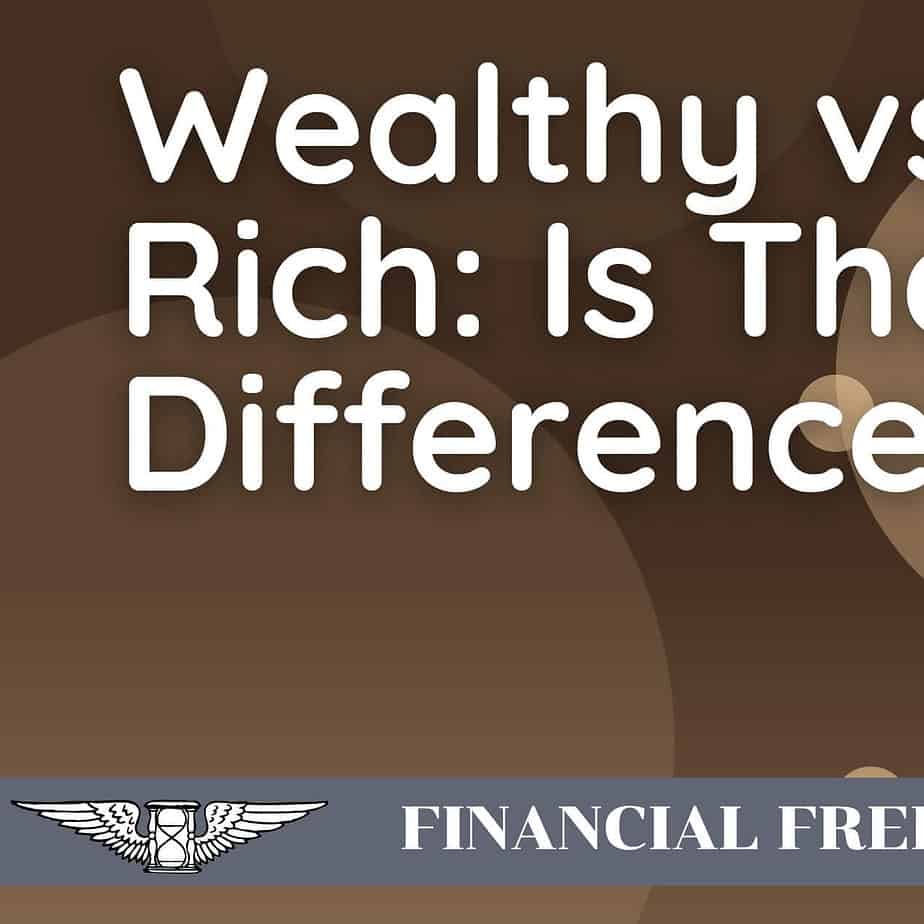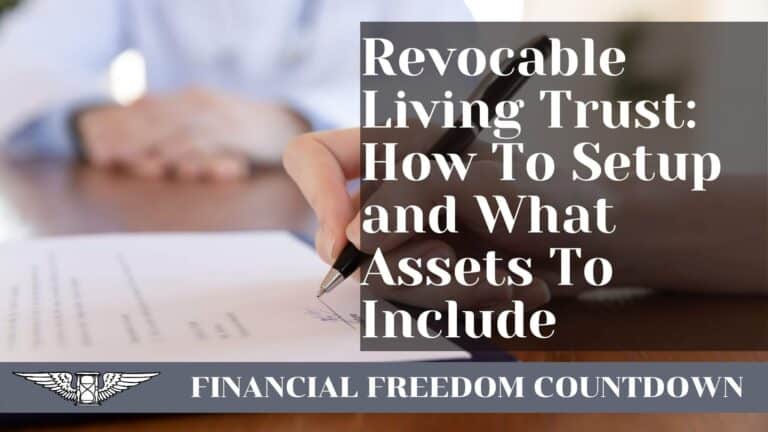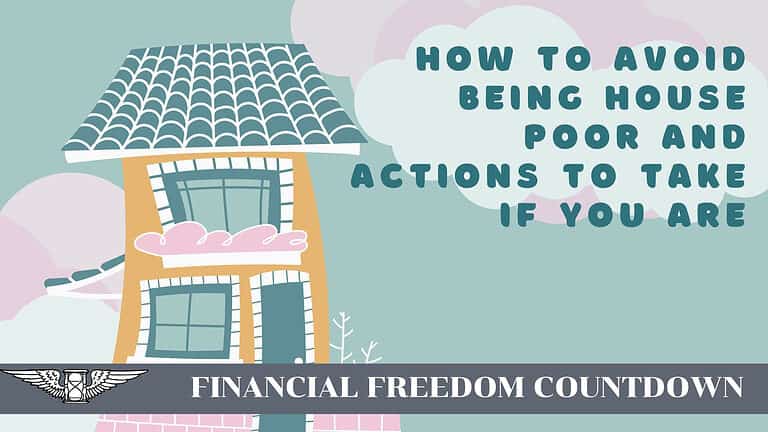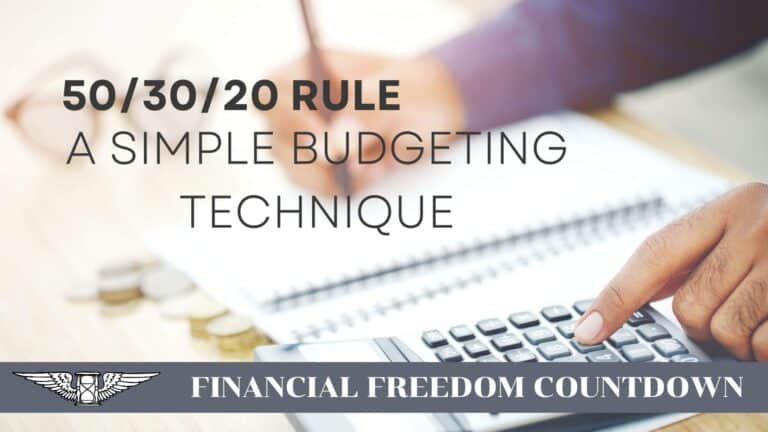Wealthy vs. Rich: Is There a Difference?

Today, most people think that being rich and wealthy is the same thing. But they are two very different things, and in some ways, they are the opposite. If you ask someone if they would rather be rich or wealthy, they will most likely answer either is okay with them. One of the main differences between rich people and wealthy people is their state of mind and attitude toward money.
Who Is a Rich Person
A rich person has plenty of money; there is no doubt. But what differentiates rich people from wealthy people is their cost of living. Rich people usually have an affluent lifestyle, like living a rich life, and live way beyond their means.
Because rich people like to show off their riches with expensive purchases and items, they spend their fortune faster than they make it. Rich means a high income and showing off their monetary status to others.
Even though rich people are in an excellent financial position, for the time being, they might never achieve financial independence. Once again, their rich lifestyle prevents this. Rich people with a high income usually spend their money as fast as they make it.
You can see rich people everywhere, on the street and television. A rich person will have the following:
- A high-paying job
- Spends a lot of money on material items
- Enjoys showing off how rich they are with expensive items
When rich people get a big promotion and pay raises, they usually upgrade their lifestyle accordingly because they feel wealthy. The more money they make, the more rich people spend, which is called lifestyle creep. And too many times, someone that considers themselves rich will spend more than they earn. This habit will cause them to get into debt.
We read stories about professional athletes or musicians who signs a huge contract and then has to file for bankruptcy several years later. They are spending more money than they are making.
Lottery winners are also considered rich. Lottery winners might feel wealthy, but suddenly becoming rich can cause someone to raise their standard of living dramatically. They start buying increasingly expensive homes, cars, jewelry, and other high-cost items. Before long, they are in debt.
Who Is a Wealthy Person
Wealthy people might also have a great deal of money. But wealthy individuals control their spending habits and build wealth. One of the best examples of a wealthy person is Warren Buffet, with a net worth of over $100 billion, who still lives in the same house he bought in 1958 for $31,500.
When it comes to rich vs. wealthy, here is where the difference begins. It is a wealth mindset—the wealthy focus on building wealth instead of trying to spend every dime they have.
Wealthy people make investments, and suitable investments will sustain their lifestyle much longer. Assets will grow and help them gain even more money long after retirement. They will increase their income as time goes on from multiple sources.
Their focus is on acquiring wealth, not spending it. The wealthy make their money work for them instead of focusing on buying more and more expensive houses, boats, and clothing. Many of the wealthy are not flashy.
You might see a wealthy person driving a 10-year-old car and wearing jeans and a t-shirt. People focused on financial independence don’t need to be flashy, drive fancy cars and show off their wealth.
Someone wealthy is not worried about being a walking fashion show, driving the most expensive car, or buying an enormous mansion. The guy next to you at the grocery store using coupons dressed in jeans could be wealthy, and you couldn’tcouldn’t tell. They look and act like an average person.
Stealth wealth involves not displaying your wealth.
Rich vs. Wealthy
The difference between being rich and wealthy is it is much better to be wealthy. A rich individual might feel wealthy, but they will only remain rich for a short time if they can’tcan’t control their spending habits.
There are many examples of rags-to-riches stories and just as many riches-to-rags stories. Getting rich fast can be good if someone understands money and has a wealthy mindset.
Rich vs. wealth is not a battle but a lifestyle. Living within their means and not spending every dime they earn. But the difference between being rich or wealthy can be a fine line.
Can a person be rich and wealthy? Not really. A wealthy individual can buy a lovely house and nice cars, but they aren’taren’t doing it to show off their wealth. They are buying those things because they want them for practical purposes.
Being rich is usually someone that has a large salary or income. But someone wealthy can make much less but still have better financial health because of financial planning.
Wealthy people might live next door to you in a middle-class neighborhood but have a high liquid net worth.
Personal Capital is a free software I use to monitor my net worth and stick to a budget. Unlike other budgeting apps, Personal Capital doesn’t need you to do the tedious task of setting up a budget. After you link all your accounts together, it looks at your current spending and creates a budget for your lifestyle. You can then modify it as needed. Personal Capital also has features to analyze your retirement accounts, eliminate fees, and track your liquid net worth and cash flow. You can read my Personal Capital Review and how I use the various components to set up your free account.
When a rich person lives next door to you, you will know it. The wealthy plan for the future, while the rich live for the moment, even if living in the moment takes every dime they make, or they get into debt.
The differences between the rich vs. wealthy can be dramatic in how they view and treat money. We see the following characteristics of the rich:
- The rich will spend little or no time on financial planning
- They will spend most of their time focused on spending
- Their money is finite and will eventually run out
- They have high expenses compared to total income
- Their lifestyle is usually dependent on a high salary will little thought toward long-term investing
- Their wealth is mostly in cash or material assets, which don’t produce any income
- They upgrade their lifestyle often and like to show off their riches
In comparison, we will typically see these characteristics with the wealthy:
- The wealthy spend time on financial planning, including setting financial goals, investing, tax strategies, and creating an estate plan for generational wealth.
- Their wealth is sustainable, and their income will continue beyond a wage or salary.
- They live within or below their means and have low expenses even if they do not follow a budget template.
- They diversify their investments and build multiple incomes, including passive income.
- Their money is in income-generating assets and long-term investment accounts.
- They do not need to upgrade their lifestyle often to keep up with the neighbors and will purchase assets over expensive items.
What Happens When a Rich Person Disregards Personal Finance
Understanding the basics of personal finance is necessary to become wealthy instead of rich. Knowing where to keep money, the difference between investing vs. saving, what not to spend money on, how to invest money, and how to make money work for them are the keys to wealth.
There are countless stories of the rich and famous that went broke and had to file for bankruptcy. A few more famous stories include:
- Rapper 50 cent, at one point, was worth an estimated $500 million and ended up $22 million in debt.
- Michael Jackson was reported to have spent $20-$30 million more each year than he earned. By 2001, he was in debt by at least $285 million. His problem was he spent more than he made.
- Mike Tyson earned more than $400 million during his boxing career. He had to declare bankruptcy in 2003, and his listed debts exceeded $27 million, most of which came from unpaid taxes.
- After MC Hammer made it big with “”U Can’tCan’t Touch This,”” he had $30 million in his bank account. He went out and bought a $1 million mansion, made $30 million improvements to the mansion, and hired 200 people to staff the home. By 1996, he had to declare bankruptcy being more than $13 million in debt.
Many rich people have to file for bankruptcy because of poor financial planning, ignoring taxes, and spending more than they make. And it is a common theme among the rich that separates them from the wealthy. Being rich doesn’tdoesn’t automatically make someone financially savvy.
Needless spending is one of the worst habits someone can have. A few examples of what the rich needlessly spent their money on include:
- Nicolas Cage spent $150 million on a $150,000 octopus, 15 homes including mansions and two European castles, an island in the Bahamas, and shrunken pygmy heads, among other items.
- Basketball star Allen Iverson earned about $200 million playing ball. He spent his wealth on mansions, fancy cars, and jewelry. By 2012, he was broke.
- The Internal Revenue Service caught up with comedian Chris Tucker when his tax bill ballooned to over $14 million. But he still spent his money on mansions.
- Hall of Fame football player Warren Sapp earned more than $82 million playing football. By 2012, he had just $826 in his bank account. He spent his money on 240 pairs of sneakers and a lion skin rug for his 15,000-square-foot mansion.
The stories of riches to rags are all the same. They all spent money on extravagant items to show off instead of investing the money and living below their means. You should only spend what you earn. And mansions continuously drain cash, even after the paychecks stop coming in.
The Road to Financial Freedom
Once someone knows the difference between rich vs. wealthy and what not to do, they can start on the road to financial freedom and becoming wealthy. Do you want a positive net worth or want to wear and drive your net worth just for show? One can achieve financial independence by following these steps.
Make a Budget
Making a budget is a helpful guideline that tells you where your money should go and where it is going. Knowing where the money is spent is important, which helps control needless spending.
Every dollar of household income will have an assigned purpose. List the expenses like rent or mortgage, car payments, debt payments, groceries, insurance, and other costs. Another approach is to put 50% towards needs, 30% towards wants, and 20% for savings using the 50/30/20 budget.
If expenses exceed monthly income, you need to find more income through side gigs or take from the wants category. Cutting out on things in the want category can include going out to eat, fancy clothes, cable TV, and other subscriptions.
Most companies drain our money by asking us to sign up for subscription services. We often pay for several subscription services and don’t even use them. Trim is an excellent service that looks at all your current subscriptions and saves money by eliminating unnecessary money leeches. Also, instead of paying full price, sign up and see if Trim can do the work negotiating your cable, phone, and internet bills lower.
Creating a budget is the first step towards understanding personal finance and working towards your goal of building wealth.
Get the Right Accounts
One should put money into various accounts as income allows. You can use checking, savings, investment, and retirement accounts. Retirement accounts can include 410(k) plans, Health Savings Accounts (HSA), individual retirement accounts, and pension plans.
One option for an HSA provider is Lively. Lively HSA is free and has no hidden fees. Also, Lively won’twon’t charge you any fees to roll over or transfer your HSA to them. You can transfer your full or partial balance directly to Lively from your existing provider. Lively will contact your previous provider and handle the transfer on your behalf.
Savings for college funds will be kept in a separate 529 plan. Checking accounts should only have enough to cover any checks or debit card expenses. Savings can be divided into savings for future plans and an emergency fund.
Pay Off Debt
Debt is the one thing that holds most people back from financial independence and becoming wealthy. Paying off debt, especially credit card debt, is necessary to achieve wealth. It is best to avoid credit card debt altogether. Debts like a mortgage, rent or car payments are usually considered monthly expenses. But you should still not buy expensive vehicles or houses you cannot afford.
There are several strategies for the best way to pay off debt. Paying off an equal amount of debt each month could cause you to eliminate the deficit more slowly and pay more interest over time.
Another strategy is to pay off high-interest debt first, lowering the amount of interest paid over time, especially if interest rates are rising. Another suggestion is to pay off the smallest debts first. This allows the debtor to pay off debts quicker and acts as motivation as each debt is paid off.
Regardless of which method a person uses, paying one debt at a time is the most effective way to pay off all debts. It is best to be financially free of debt, especially credit card debt. High-interest debt can take years to pay off.
Build an Emergency Fund
Not having enough funds in the bank to cover an emergency can set a family back from reaching their financial goals. An emergency fund should be kept in a separate savings account where it will be readily accessible to pay for an emergency. A separate account helps everyone avoid the temptation of using it for non-emergencies.
It is recommended to have enough money to cover three to six months of living expenses. Living expenses would include rent or mortgage payments, car payments, utilities, and food should a job loss or other problems happen that cause unexpected expenses.
Improve Your Financial Education
Learning everything you can about financial topics will help everyone improve their financial health and reach their financial goals. Learning about investing, dividends, financial planning, financial security, and financial freedom is necessary to build wealth.
When it comes to investing in the stock market, you can make financial decisions for yourself instead of following the latest stock market tips. Learn about stocks, mutual funds, exchange-traded funds, closed-end funds, value investing, precious metals, and dividend investing. The more you learn, the more passive income you can make from your investments.
Create a revocable living trust to safeguard your assets and avoid probate issues from the government.
Trust & Will provides state-specific trusts to protect and transfer your most important financial assets. You can also nominate legal guardians for your children to ensure they are looked after by someone you know and trust in case something happens to you.
Start Investing
One of Warren Buffet’s famous quotes is, “If you don’t find a way to make money while you sleep, you will work until you die.” One of the best ways to make money while you sleep is to invest in stocks or funds that pay a dividend. That is called passive income or making your money work for you.
Some of the best ways to earn a passive income are to invest in products that pay a good dividend, like closed-end funds, dividend aristocrats, and mutual funds. When you’reyou’re learning about investing, it will help to learn about diversification.
You can buy publicly-traded dividend ETFs using no-fee platforms like M1 Finance for as low as $10.
Your investment portfolio should be a mix of dividend-producing stocks and bonds or funds that invest in stocks and bonds. Having a diversified portfolio will limit your losses when the markets turn negative. Usually, when stocks are dropping in a bear market, fixed-income investments could start moving higher, which will limit losses. Of course, with rising interest rates and the upcoming recession, most asset classes move in the same downward direction.
Dividends are typically paid periodically from stocks, bonds, and closed-end funds, making them suitable investments for monthly income. Many wealthy investors will reinvest the money from the dividends back into the stock or fund. That not only increases the number of shares they own but also increases the dividends they get. Some wealthy investors might further diversify into real estate investing or alternative investments.
Wealthy investors prefer real estate passive income compared to owning rental properties. Real estate crowdfunding is one of the ways to achieve this goal.
Fundrise has one of the lowest minimums (only $10 for the Fundrise Starter Portfolio and is available for accredited and non-accredited investors.
PeerStreet has equity or debt investments on its platform. For debt deals, you provide hard money loans for others to buy the property. The advantage of PeerStreet is that you can filter debt deals by Loan To Value (LTV) and also stressed LTV. PeerStreet has a low $1,000 minimum and has an optional automated investing feature that automatically places you into investments that match your criteria.
Platforms like Yieldstreet provide investment options in art, structured notes, supply chain financing, etc. They also have fixed-income portfolios spread across multiple asset classes with a single investment with low minimums of $2,500.
Create a Business
One of the best ways to stay wealthy is to start your own business. Leverage your human capital and the high-income skills you acquired for yourself instead of working to make others rich.
It is no coincidence starting a business is the only way to become a billionaire.
You can easily invest in small firms around the country by using a platform like Mainvest. It is free to join, and there are no fees. Choose the businesses you would like to invest in. You can begin investing with as little as $100, making it a fantastic investment for novice and expert investors.
Get a Financial Advisor
There is nothing wrong with getting a financial advisor to help you reach your financial goals. No one should take a financial advisor’s advice as the final word, which is why getting a financial education is necessary.
When you know about investing and other financial matters, you will be able to understand the advice an advisor gives you and come to your own financial conclusions. A financial advisor can provide ideas you might not have thought of and help you fine-tune your financial goals.
Build Wealth
Building wealth takes time and patience, and it doesn’t happen overnight. To build wealth, a person spends and invests their income wisely.
Wealthy people focus on long-term goals and passive income. Passive income from sources like dividends creates an income stream apart from their regular income.
Some wealthy people have been accused of being frugal with their money, but in reality, they are spending it wisely. Achieving wealth for them becomes a lifelong habit of spending and investing wisely.
True wealth is not only measured in higher average net worth but also in financial security. Wealthy people might work for someone else or be their own boss as a business owner. To them, being wealthy means controlling their time and not just long-term wealth.
One of the many reasons individuals pursue early retirement is to have the freedom to spend their day as they please. They may have achieved fat FIRE or work at low-stress retirement jobs, but in either case, they are living on their terms.
Would You Prefer To Be Rich vs. Wealthy?
The difference between the rich vs. wealthy is how they spend their money and their mindset about money. The rich have high incomes but spend their entire income and usually spend more than they make.
The rich like spending money on luxury items like mansions, expensive cars, flashy jewelry, and designer clothes. They enjoy showing off their money with these costly items. They don’t seem to understand money or how to make it work for them. They believe money is an infinite resource that will never run out, which it is not. It is common for someone rich to end up broke and eventually file for bankruptcy.
The wealthy live within their means or below their means and live a sustainable lifestyle. They do not spend all of their income; they invest it. They learn everything they can about investing, tax planning, and earning passive income from their investments.
Instead of money being a finite product, the wealthy create sustainable wealth. Their financial success is not dependent on a high-income job. Their money is made through managing cash and investments smartly.
A passive income is money you earn 24 hours per day, like extra income. Earning money from a passive income is most commonly earned from dividends or interest-bearing investments. Still, it can also be from other sources like a rental property. The wealthy let their money work to create wealth.
The first step to becoming wealthy is to make a budget. After a budget is created, you need to start a special savings account to be used only for emergencies. Once this is done, non-mortgage debts should be paid off, primarily credit card debts, until they are debt-free.
Depending on how a budget is set up, money can be set aside for investments while paying off debts. These investments can be in the form of 401(k) or individual retirement accounts.
It helps to start investing as soon as possible with long-term goals in mind. The sooner you begin building wealth, the sooner you will become wealthy. As time goes on, building wealth will become second nature to you.
You don’t have to be a lottery winner to create long-term wealth, but now you know how to handle money properly if you win the lottery.

John Dealbreuin came from a third world country to the US with only $1,000 not knowing anyone; guided by an immigrant dream. In 12 years, he achieved his retirement number.
He started Financial Freedom Countdown to help everyone think differently about their financial challenges and live their best lives. John resides in the San Francisco Bay Area enjoying nature trails and weight training.
Here are his recommended tools
M1 Finance: John compared M1 Finance against Vanguard, Schwab, Fidelity, Wealthfront and Betterment to find the perfect investment platform. He uses it due to zero fees, very low minimums, automated investment with automatic rebalancing. The pre-built asset allocations and fractional shares helps one get started right away.
Personal Capital: This is a free tool John uses to track his net worth on a regular basis and as a retirement planner. It also alerts him wrt hidden fees and has a budget tracker included.
Streitwise is available for accredited and non-accredited investors. They have one of the lowest fees and high “skin in the game,” with over $5M of capital invested by founders in the deals. It is also open to foreign/non-USA investor. Minimum investment is $5,000.
Platforms like Yieldstreet provide investment options in art, legal, structured notes, venture capital, etc. They also have fixed-income portfolios spread across multiple asset classes with a single investment with low minimums of $10,000.






